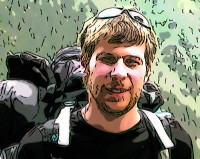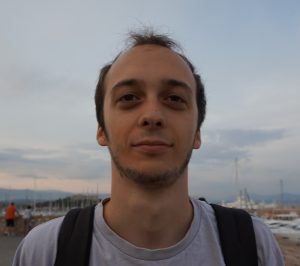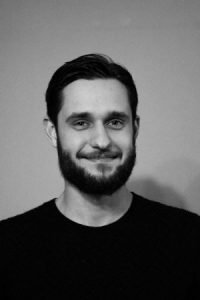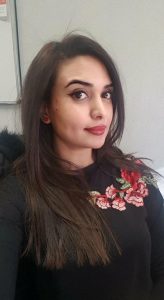Events in May 2018
-
Perception, Cognition and Interaction: Part IV
Perception, Cognition and Interaction: Part IV
–
May 14, 2018Talk 1
 Speaker
Speaker
Michal Koperski (STARS)
Title
Spatio-Temporal Features for Action RecognitionAbstract
Advancements in Convolutional Neural Networks showed significant improvement in object detection and recognition task on still images. But in case of video analysis, the improvement is less significant and shallow architectures with handcrafted features still obtain competitive results. It seems that video analysis requires different representation. This talk will cover action recognition problem, we will focus on spatio-temporal features modeling. We will review how this problem is tackled by state-of-the-art methods including shallow and deep architectures. Finally, we will show our methods which efficiently model spatio-temporal layout of features and improve state-of-the-art results.Talk 2
Speaker

Théo Thonat (GRAPHDECO)Title
Real time Image Based RenderingAbstract
Creating realistic images with the traditional rendering pipeline requires tedious manual work, from 3D models generation to lighting setup. Image Based Rendering is an alternative way to render a realistic scene, only using a set of casually captured photos.
In this talk, I will present the principles of image based rendering and some implementations that have been proposed over the past few years, focusing on the real time approaches. I will then present their current limitations and how some of our team projects are trying to overcome them. -
Perception, Cognition and Interaction: Part V
Perception, Cognition and Interaction: Part V
–
May 28, 2018Talk 1
Title
Design of activity recognition systems : An Application to the measurement of human factorsAbstract
Activity recognition aims at recognizing and understanding the movements, actions, and objectives of mobile objects. These objects can be humans, animals, or simple artefacts. Many important and critical applications such as surveillance or healthcare require some form of (human) activity recognition. Existing languages can be used to describe models of activities, but they are difficult to master by non computer scientists (ex: doctors). We present a new language dedicated to end users, to describe their activities. We call it ADeL (Activity Description Language) and we provide it with two formats: textual and graphical. This language is intended to be part of a complete recognition system. Such a system has to be real time, reactive, correct, and dependable. We choose the synchronous approach.Talk 2
Speaker

Konstantinos Gavriil (Evolute GmbH & TU Wien, Vienna, Austria)Title
Architectural Geometry in PracticeAbstract
Evolute GmbH is a high-tech company founded as a spin-off from Vienna University of Technology in 2008. Since its foundation, Evolute has gained a wealth of practical expertise in enabling building projects featuring complex geometry and in solving geometric problems in automation and production technology. During the talk, projects from Evolute's portfolio, which revolve around such problems, will be presented. These will serve as examples of the architectural industry's recent demands for complex geometry and as the motivation behind recent advances in discrete differential geometry. Such projects include the Investcorp Building in Oxford, UK and the Eiffel Tower pavilions. The paneling of freeform surfaces with panel elements of different materials and combinatorics which fulfill desired properties, such as developability and size, is one such problem and a novel solution approach will be discussed.






